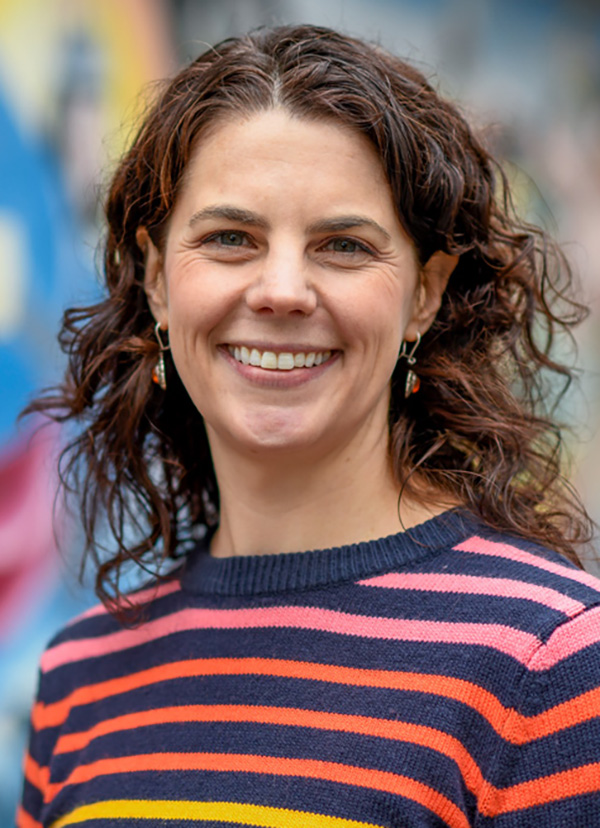 Amy Bucher
Amy BucherAmy Bucher graduated with a PhD from a psychology program that no longer exists, and that made her skill set unique in the post-grad world. She puts those skills to use at Mad*Pow, a design agency that improves peoples’ experiences with technology, services, organizations and each other.
Amy Bucher
“Mad*Pow leverages strategic design and the psychology of motivation to create innovative experiences and compelling digital solutions that are good for people and good for business.”
That is Mad*Pow’s mission statement, ripped right from their webpage. Mad*Pow employs medical doctors and all kinds of behaviour change design experts. But perhaps you would be surprised to learn that Mad*Pow’s behavior change experts come from a variety of training backgrounds. Currently, there is only one person on the team with a PhD in psychology!
That one person is Dr. Amy Bucher, the vice president of behaviour change design at Mad*Pow. Amy brings a unique skill set to her position, and took a rather unique path to get there. She started school at Harvard, doing an undergrad focused on social psychology. From there, she moved on to the University of Michigan at Ann Arbour for her Master’s and PhD in Psychology. Although that is the official title of her degree, it was achieved a little over a decade ago in a program that no longer exists.
It was called Organizational Psychology. It was not an Industrial/Organizational program of the type we see offered now, it was more as Amy describes it a “contextualized social psychology program”. That means that when she graduated she was more of a social psychologist, albeit one with a deep knowledge of workplaces and organizations.
Amy realized as she was nearing the end of her schooling that she did not want to go into academia. That track meant specialization, and she wanted to broaden her horizons rather than narrow her focus. She began to work with other researchers and learned many different research methods before graduation. She learned how to dive into information and deal in the “grey areas”. After all, research is always in progress.
That comfort with the “grey areas” has served her well at Mad*Pow, as often clients will ask Amy for definitive answers on how to tackle a problem. She is adept at explaining that while formative research can provide a direction, it can’t often come up with a concrete and foolproof series of steps to take to achieve an aim. It’s important to experiment with different approaches that are specific to the clients’ customers and their needs to figure out the best solution.
Her desire to broaden her scope is also an asset, as Amy thrives on having a variety of projects and problems to work through. She likes being exposed to new things. She says,
“Right now, I’m leading a project to understand what people with a rare genetic condition might be looking for from an online portal to support their condition management. So we’ve designed moderator guides, recruited people with this condition, and recruited people who serve those with this condition to conduct interviews. We’ll be creating output reports with insights from that research, doing a workshop with the client that we will also design, then translating all the insights from the research into designs for this portal.”
Amy says that before starting this project, she had never heard of this particular genetic condition before (it is very rare). Now she’s had the opportunity to learn quite a bit about it and understand more about the day-to-day lives of the people who live with it.
“I feel excited by this type of new knowledge that I don’t think I’d encounter in any other way.”
She’s also excited at the prospect of some new colleagues. There are many different types of researchers at Mad*Pow (which further helps Amy broaden her horizons as she learns from them), but soon there will likely be a few more psychology grads joining the fold. As Amy says, there are now many great opportunities outside academia for graduating researchers. And working alongside Amy seems like a pretty great opportunity.
